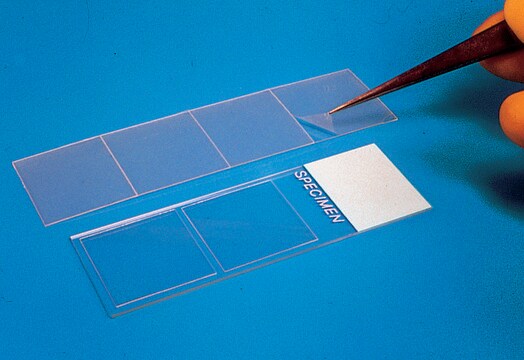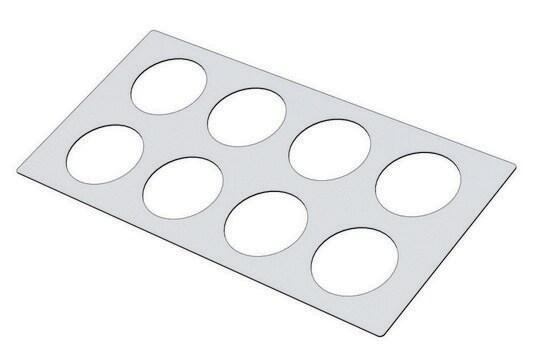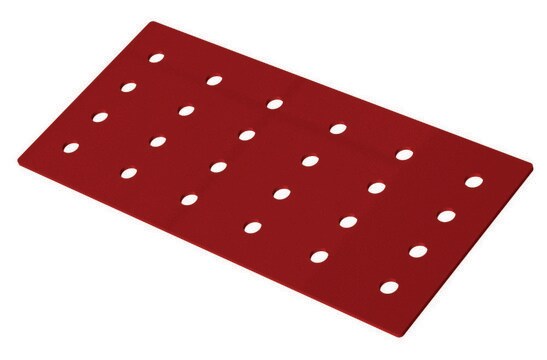GBL714022
Grace Bio-Labs HybriSlip™ hybridization cover
L × W × thickness 22 mm × 40 mm × 0.25 mm, pkg of 100 ea
Synonym(s):
coverslide, hydrophobic coverslip, nuclease free coverslip, thin plastic coverslip
Sign Into View Organizational & Contract Pricing
All Photos(2)
About This Item
UNSPSC Code:
41122600
NACRES:
NB.22
Recommended Products
material
colorless
polycarbonate
sterility
non-sterile
packaging
pkg of 100 ea
manufacturer/tradename
Grace Bio-Labs 714022
L × W × thickness
22 mm × 40 mm × 0.25 mm
Looking for similar products? Visit Product Comparison Guide
General description
HybriSlip™ ideally suited for in situ hybridization, in situ PCR and hybridization to genomic arrays on glass slides.
HybriSlips are flexible, thin (0.25 mm) covers that minimize fluid friction and facilitate uniform reagent distribution. RNase free, hydrophobic covers will not trap or bind probes to their surfaces like coverglass. Product is ready-to-use without pretreatment. Working surfaces are protected with clean release liners to prevent RNase contamination. HybriSlips remain flat and will not curl, even at high temperatures.
HybriSlips are flexible, thin (0.25 mm) covers that minimize fluid friction and facilitate uniform reagent distribution. RNase free, hydrophobic covers will not trap or bind probes to their surfaces like coverglass. Product is ready-to-use without pretreatment. Working surfaces are protected with clean release liners to prevent RNase contamination. HybriSlips remain flat and will not curl, even at high temperatures.
- RNase and DNase free
- Hydrophobic
- Disposable
- Will not chip or break
Legal Information
HybriSlip is a trademark of Grace Bio-Labs, Inc.
Certificates of Analysis (COA)
Search for Certificates of Analysis (COA) by entering the products Lot/Batch Number. Lot and Batch Numbers can be found on a product’s label following the words ‘Lot’ or ‘Batch’.
Already Own This Product?
Find documentation for the products that you have recently purchased in the Document Library.
Jagadeesh Gandla et al.
Pain, 158(9), 1765-1779 (2017-06-15)
Pathophysiological mechanisms underlying pain associated with cancer are poorly understood. microRNAs (miRNAs) are a class of noncoding RNAs with emerging functional importance in chronic pain. In a genome-wide screen for miRNAs regulated in dorsal root ganglia (DRG) neurons in a
Our team of scientists has experience in all areas of research including Life Science, Material Science, Chemical Synthesis, Chromatography, Analytical and many others.
Contact Technical Service








